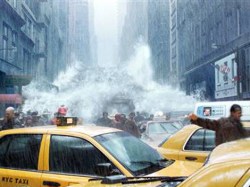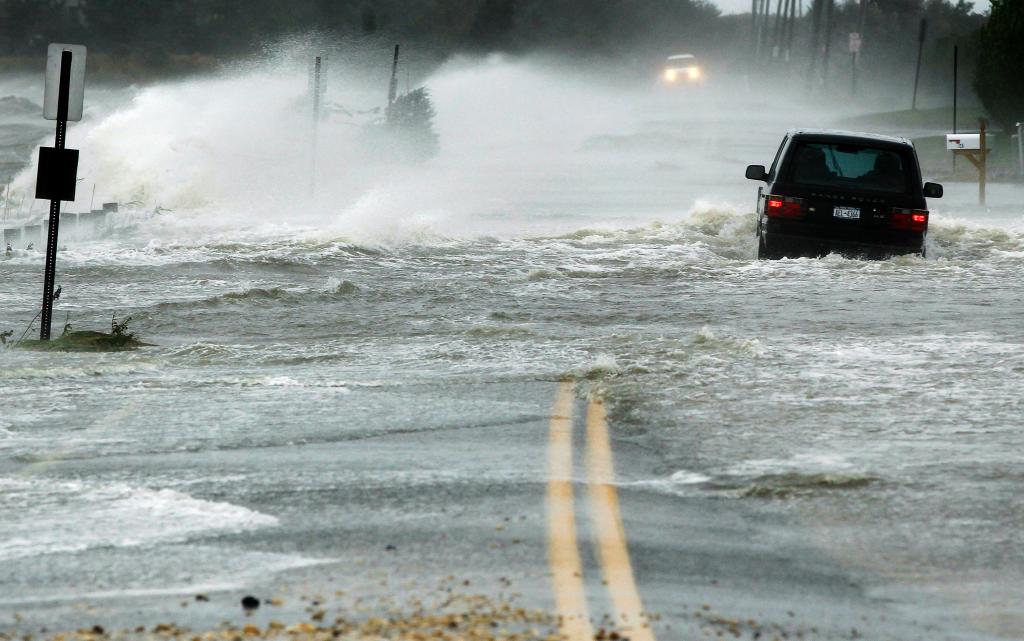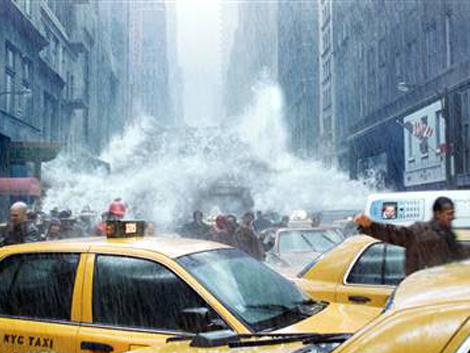
20th Century FoxA scene from the movie The Day After Tomorrow, an ever-so-slightly hyped up take on “abrupt climate change.”
Twenty years ago, scientists atop the Greenland ice sheet pulled up an ice core that both excited their curiosity and scared the pants off of them. They had discovered definitive evidence that Earth’s climate can change quickly, dramatically, and unpredictably, rearranging the planet’s energy balance and plunging Europe and North American into bitter, 1,000-year cold snaps. It wasn’t quite like they played it in The Day After Tomorrow, but it was damn scary nonetheless.
Though there is now ample evidence that our planet has seen dozens of these sudden climatic changes, the Intergovernmental Panel on Climate Change — the official, consensus-building arbiter of climate science — rates the probability of humans causing another abrupt climate change in the next century as low: less than 10 percent. Still, a one-in-10 chance of pushing the climate over a cliff is enough to sober you up. Should we be as scared as those scientists were?
“The science says that this is not yet screaming-hairy-panic-conniption-fit-let’s-run-for-the-hills-tearing-our-hair-out,” says our ever-quotable guest on this edition of Generation Anthropocene.
Richard Alley, a professor in the Department of Geosciences at Pennsylvania State University, was one of the key scientists who first realized the portentous message cradled in the Greenland ice core. While he agrees with the IPCC’s rating — he contributed to the most recent report — he thinks the longer we wait to wean ourselves from fossil fuels, the more we load the climatic dice. Every gigaton of CO2 we inject into the air just brings us closer to the possibility of a truly dramatic shift in climate.
Since that fateful discovery in Greenland, Alley has continued to focus his efforts on how our world’s ice sheets (collectively termed the cryosphere) will respond to climate change, but he’s also reached out, regularly testifying before Congress about climate change, participating in the PBS documentary Earth: The Operator’s Manual about humanity’s energy use, and even writing several geo-songs for his well-played guitar.
Despite discovering perhaps the most frightening aspect of Earth’s climate, Alley exudes an infectious optimism that humans can not only avoid abrupt climate change, but also improve everyone’s lives in the process. As he says, “Are we adding up enough good things and knowledge to outweigh the harm? Our ancestors did, and we’re here having this conversation because they did.”
Let’s hope Alley is right. His version of humanity’s future is far more pleasant than The Day After Tomorrow.
Listen in as we discuss climatological tipping points, who will pay most dearly as the climate changes, and why it’s perfectly justifiable to look at the evidence and say, “Aaaaaaah! Panic!”
This interview is part of the Generation Anthropocene project, in which Stanford students partake in an inter-generational dialogue with scholars about living in an age when humans have become a major force shaping our world.



